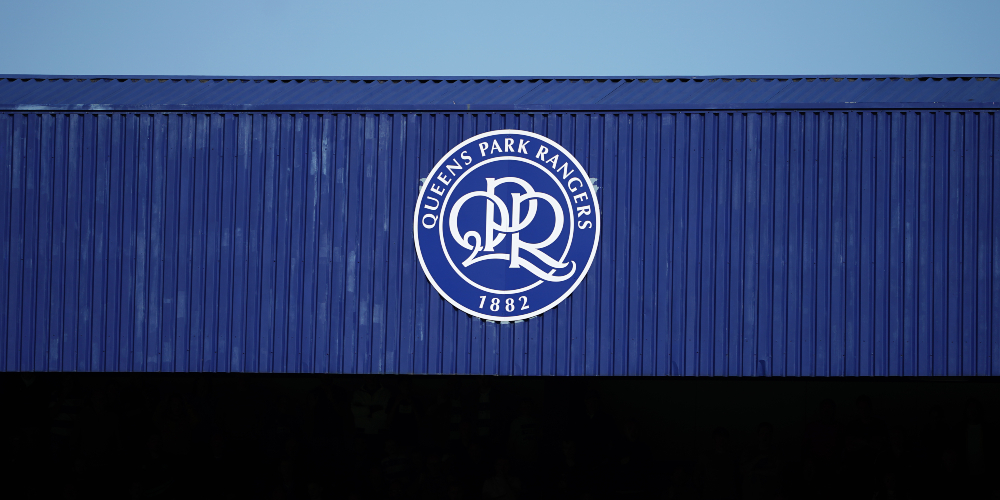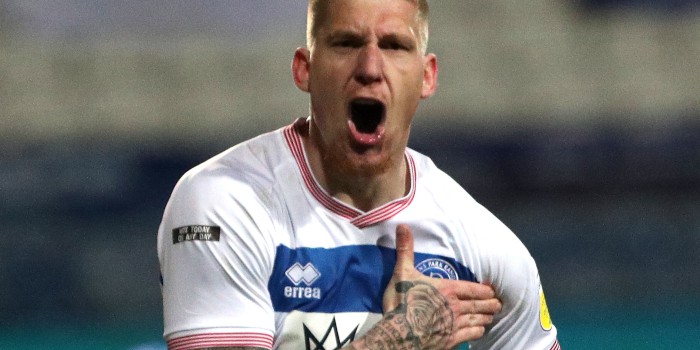QPR will face major challenges during vital transfer window

The summer transfer window will be vital – and challenging – for QPR.
A promising campaign means there will be some optimism that Rangers might be promotion contenders next season.
Shrewd recruitment will be of obvious importance, but the current climate is difficult.
A combination of coronavirus and Brexit means clubs have had to adapt to exceptional circumstances.
Restrictions in place because of the pandemic mean scouting players in person often hasn’t been possible for the best part of a year.
And that’s far from ideal for a club needing to tread carefully in the transfer market.
Scouts cannot attend matches unless watching a team their club will play in its next three fixtures.
If – and it’s been a big if – there is space, it is also possible for a club to watch a player they have out on loan.
Rangers, like many others, have increasingly used data to help with recruitment in recent years. Now the emphasis on data and video is greater than ever.
“Covid has had a massive impact on recruitment,” admits QPR’s head of recruitment Andy Belk.
“It’s made live viewings very difficult, so we’ve been doing a lot more video work.
“We’ve also been doing more on the data side which the club and I wanted to do more of as that’s my background.
“I thought it was an area we could improve and it’s something we have improved. It (the pandemic) has probably accelerated that process and made it a bit easier to get that in place.
“But you’ve taken out live games and that does mean that instead of having a chance to see a player play live, say 10 times before you sign him, you’re not really going to have that chance.
“That means you need to do the video and data sides of it a lot more.
“It’s not ideal. We will try to see everyone we bring in in the summer play live – even if it’s just once or twice.
“Or we may have seen them play live before this started. They may have been on our radar a year ago and we haven’t since had a chance to see them play live so we’re just topping up with videos.
“We’re always trying to work far in advance, so it’s not as if the transfer window closes and we throw every player we’ve identified in the bin and start from scratch.
“It’s an evolving process. There’s players that have been on our radar for over a year that we’ll have seen play live previously.
“If not, then we will do our best to try to see them play live.”
Data and recruitment
The so-called moneyball method of recruitment has been a hot topic.
A data-driven approach has been trumpeted as something new and unique to certain clubs, when it reality it has been used to a large extent for some years.
It has its detractors. Many in football are sceptical and believe nothing matches live scouting when it comes to identifying transfer targets.
“Certainly at Championship level, without knowing too in-depth what other clubs do, I’d be surprised if it’s not used across the board and lower down,” Belk says.
“I hear some people argue that you can’t sign a player purely from data. But I don’t think anyone’s really saying you can.
“I would run a mile from anyone who says they want to sign a player purely from data.
“But I would also run a while from someone wanting to sign a player purely from video or purely from live scouting or from speaking to someone about the player’s character.
“It’s not done in isolation. It’s an accumulation of every area.”
Some signings have been more driven by data than others.
Possibly QPR’s first major acquisition based on data was that of Tjarron Chery from Dutch side Groningen in 2015.
His statistics at the time were hugely impressive and he was therefore bought with money from a windfall resulting from Liverpool’s sale of former Rangers academy player Raheem Sterling to Manchester City.

More recently, the data on Jordy de Wijs spoke for itself when Rangers were looking for a left-sided centre-back who was physically dominant but also good on the ball.
De Wijs wasn’t being selected by League One Hull but it was felt he would be a good fit given what QPR needed.
Belk explains: “In terms of what we were wanting from a centre-back, and in terms of what you’ve seen when he’s played, you can hazard a guess at what data we were looking at because he’s done exactly what the data said he was going to do.
“We needed a centre-back who was going to come in and be dominant and I think everyone can agree that when he’s played he’s done that for us.
“Perhaps people saw he wasn’t playing for a League One team. But players don’t always fit at clubs for whatever reason and they go somewhere else and do really well.
“There’s a few others that we got close to and never got the chance to sign because they went to other clubs.”
QPR and Brexit
Brexit presents a different challenge, with recruitment from Europe now far less straightforward.
It has resulted in a greater demand for British players and essentially more rods in the pool QPR have been fishing in – as if competition for those players wasn’t intense enough.
“It’s certainly been a challenge, with Brexit and Covid,” Belk acknowledges.
“The pool has got a lot smaller in terms of what players you can bring to play in the UK.
“They need 15 points to come in. They can pick up points from various leagues they play in, international appearances and other things.
“It works more on a league rather than country basis. For example you get 10 points from playing in the French top tier so would only need five more.
“It’s heavily impacted some markets but it has potentially opened some others, like South America for example.
“But that brings its own logistical problems in terms of going back to the issue of whether you can see them play live.
“Although we are starting to dabble in that region in terms of video and data, it’s unrealistic at this stage for me to jump on a flight to go to Brazil for a month to look at the Brazilian league.
“So what Brexit will really mean is that more clubs are looking at a smaller pool of players.
“From my point of view it makes things easier in that it drastically reduces the numbers you work with.
“But then it’s made it more difficult because if you’re in for a player then instead of four clubs being in for him there are likely to be about 10, so getting a deal over line is probably going to be more difficult.”
‘The IT guy’
Belk has been at QPR for almost 13 years – the first manager he worked under there was Iain Dowie.
He was often referred to as “the IT guy” back then, but his role has evolved as his line of work became more common – and respected – within football.
When Jimmy Floyd Hasselbaink was appointed as part of an overhaul in 2015, Belk became the club’s recruitment analyst.
He took over as head of recruitment following the departure in December 2019 of Gary Penrice, who was Rangers’ de facto chief scout.
Belk puts his development in large part down to working with the likes of Penrice, Steve Hitchin and Ian Butterworth, who now work for Celtic, Tottenham and Burnley respectively.
“I’ve had the chance to learn from some very good people and they’ve helped with my pathway. I’ve picked up a lot from them,” Belk says.
“I’ve seen quite a few changes – managerial changes and a couple of changes in ownership as well
“I was the IT guy, the Prozone guy, or whatever it was called. It was always seen as quite separate (from recruitment) then.
“It’s only in the last few years, when the role of recruitment analyst came about and I moved into that, and then that role evolved, that I ended up going into the recruitment side.
“There’s more and more people with my background that have gone via that pathway. Now it seems to be a natural progression.”

15/04/2021 @ 3:14 pm
FFP = no money = no top class players.